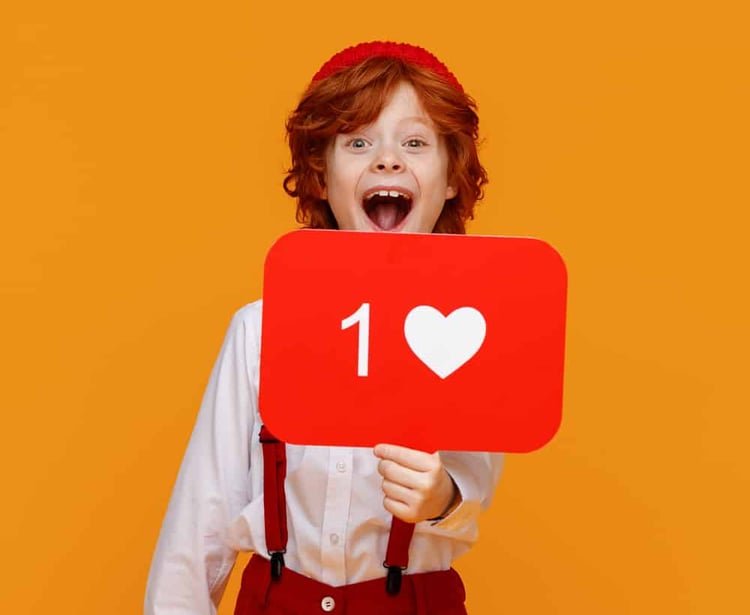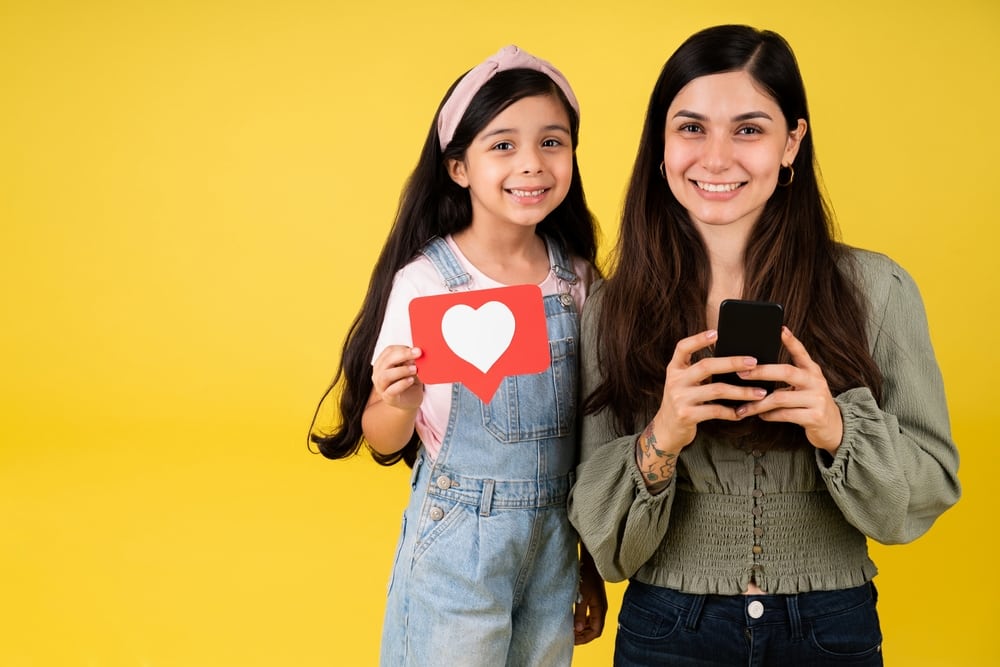
Article written by Axis Geffen
Parents have always embarrassed their children by showing compromising photos that they feel are "just too cute not to share." Nowadays, this over-sharing takes place on social media and is referred to as "Sharenting." Sharenting may seem innocent, but the truth is it comes with many risks. Something that was once a minor annoyance now presents possible dangers to your children. Long story short, in the Social Media Age, embarrassing photos are now the least of your child's concerns.
Before you get the notion that nobody wants to see your kids, that's not what I'm saying. I'm not judging you for putting up 1200 pictures of your perfect little pumpkin. Instead, parents must understand that there is a difference between careful sharing and exploitive sharing.

What are you sharing?
If you were to ask my parents if it was okay to take a photo of their kid taking his first shower, they would have said "absolutely". I assure you that growing up, I strongly disagreed. However, as a child, my opinion didn't matter. Likewise, I've been to many people's houses where they show off pictures of a baby's first bath or some other event that they marked as a milestone. I've never appreciated these photos. Not because there was a bad intention behind it. Rather, it ignored the child's privacy and often, the child (or eventually the adult that they became) didn't appreciate it.
The problem is that, as embarrassing as that photo was for me as I entered my teens, the children of today are victims of an unforgiving and unforgetting internet. A photo posted on social media today can be copied, distributed, bought and sold thousands of times, or archived indefinitely without the original owner even realizing that it happened. Imagine the most embarrassing moment of your childhood shared endlessly with strangers for all time. Sadly, for many children today, this is a reality.
Why are you sharing it?
This has always stumped me. I get that in some nutty way, you feel pride or humour or some other emotion attached to this photo. Regardless, why do you feel the need to share it with others? Especially with strangers? Sadly, this is more about the poster than the subject being posted. Often, the person posting the image or comment experiences a feeling or emotion at the time that they want to feel again. In time the feeling fades, and we want to reach out to others to relive some more of that recognition or emotion. That's not necessarily a healthy thing.

Who are you sharing it with?
One of the most amazing things I notice is that people often lie to themselves. They say, "I'm only sharing this with my family" or "my friends" or "a few designated people." But the internet doesn't work like that, and in this day and age, we all pretty much know that.
When you upload any information to the internet or any social media platform, you are accepting that it is possible that the item you uploaded or posted will be available to other people (whether or not you like it or permit it) for an indefinite amount of time (possibly forever). Despite your privacy settings, firewalls or VPNs, you are, in effect, accessing a stranger's computer somewhere in the world and depositing a copy of your information onto that remote computer. That's what the "cloud" is; it's a stranger's computer somewhere in the world that you do not control access to.
So, when you upload information anywhere, you are giving a copy of that information to a stranger. That stranger now has control over your information...well, sort of. There are many strangers with many computers, and some of them are protected, and some of them are not. Sometimes, even the protected computers are accessible by other strangers that buy access, hack into them, or have public access through another door. So, whatever you upload is automatically up for grabs.
How long will it be available?
How long will your content be available? That is a good question. It all depends on which stranger's computer you accessed and who else was accessing it at the same time. Then it depends if that information was archived automatically, copied or downloaded by any other strangers. Information could be available for seconds or forever.

It's my kid, and I can post what I want to!
You're not necessarily wrong. However, choosing to overshare your child doesn't necessarily reflect well on you either. It says something when a parent has little to say about themselves but everything to say about their child. The willingness to compromise a child's privacy and to grow their child's digital footprint speaks volumes about a parent's responsibility towards that child.
The Simple Truth about Sharenting:
In most of the world, sharenting is not addressed by the existing laws, and it's not illegal. However, in some jurisdictions, a parent, grandparent or another party can be charged and convicted of endangering a child or breaching the privacy of the said child. If you're going to post your child online, understand that no one can guarantee that your child or their identifying information will not be compromised by a third party. Understand further that you may be doing more harm to your child by posting in excess. How much is too much? Unfortunately, that's something you have to determine for yourself. The first step is to know the risks of sharenting and do so with caution.
%201.png?)
